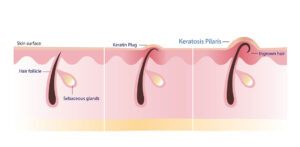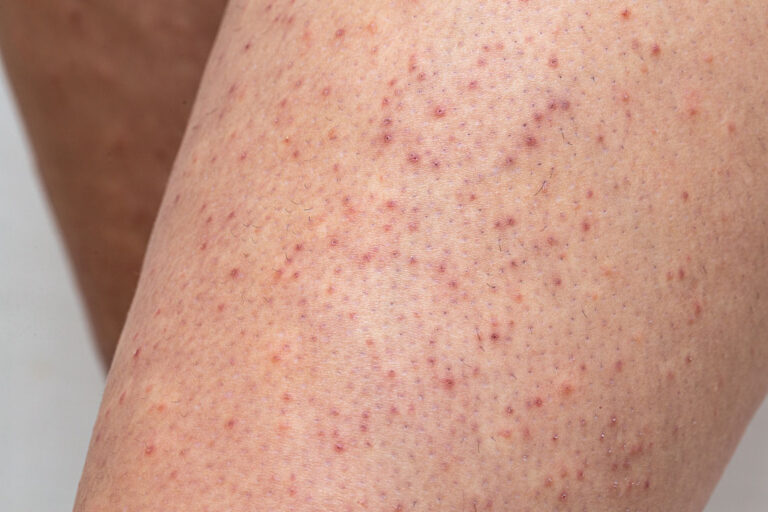What is chicken skin, AKA keratosis pilaris?
Chicken skin, AKA keratosis pilaris is a genetic condition. It is defined as a disorder of abnormal keratinization (buildup of keratin) of the upper part of the hair follicle. Keratin is one of the proteins that prevent the skin from infection. Sometimes, the follicles will get plugged with excess keratin over time and cannot exit the skin surface normally. That is how the goosebump-like lesions form.
What is the common age for this condition?
These goosebump-like lesions are mostly seen in teenagers, but adults may also exhibit them in the back of the arms, buttocks and thighs. They get dry and itchy, especially during the winter time (when the air is more dry). KP is not harmful, but it’s also hard to treat.

What are some home remedies for this condition?
Some ways to improve the symptoms include:
- Keep the area moisturized at all times
- Avoid harsh soaps and cleaners
- Wear gloves when using strong cleaning products
- Use urea-containing moisturizers to help the dead skin cells to loosen and fall off
- Don’t use hot water for baths and showers
- Use body washes that contain salicylic acid or glycolic
- Add omega-3 to your diet. Walnuts, flax seeds, salmon, sardines, and soybean help maintain a moisturized skin. Also, don’t forget leafy greens. Those are good for everything!
What medications would be prescribed for this condition?
There are some medications that can help to control the symptoms:
- Prescription creams containing ammonium lactate
- Prescription urea moisturizers
- Topical retinoids which accelerate skin turnover, which helps to clear the skin surface and help the follicles to the skin surface
- Also you can use topical corticosteroids, which will help with the symptoms (use of corticosteroids are recommended for only a short time)
For more information about chicken skin, click here.
Please note that this information is intended for general education and does not apply to specific cases. Please schedule an appointment for an individualized assessment and a long-term plan. We will provide complete support until you are symptom free and you stay symptom free.
Return to our Health Blog.
